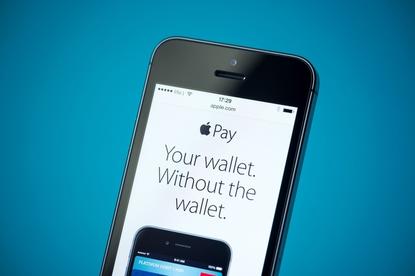Banks vs Apple: Banks confirm only Apple Pay in their sights, for now
- 17 October, 2016 09:58

A group of banks has confirmed that, at present, only Apple Pay is targeted by an application to the Australian Competition and Consumer Commission that would allow them to engage in a collective boycott of digital wallet services.
Bendigo and Adelaide Bank, the Commonwealth Bank of Australia, National Australia Bank and Westpac in July lodged an application with the ACCC seeking authorisation to conduct joint negotiations and potentially collective boycotts of digital wallet services.
In addition to Apple Pay, the application named Google Pay and Samsung Pay.
The banks argued that the providers of those three services may be in a position to negotiate terms for use of their mobile wallets that are “likely to result in reduced competition and innovation, and increased risk in the security and transparency of mobile payments.”
The confirmation by the banks that only Apple was the target of their application came in correspondence this month with the ACCC.
Within Australia only American Express and ANZ customers can use Apple Pay (compared to more than 3000 issuers around the world, according to Apple).
The banks want Apple to open up use of the iPhone’s Near Field Communications antenna — which is used by Apple Pay for contactless payments — to third-party digital wallet services (e.g. the banks’ own offerings). Apple has said that the banks also want to pass on to consumers the fees it charges issuers for Apple Pay transactions.
Apple has said that it has attempted to negotiate agreements with each of the applicant banks bar one (which was not willing to sign a confidentiality agreement).
Even if the ACCC backs the banks’ application, Apple has said it “will not and cannot” agree to the conditions likely to be sought by the banks.
Opening up access to the iPhone’s NFC capabilities “is not open to negotiation with any bank,” Apple said in a response to the banks’ application.
In a supplementary submission to the ACCC consultation, the banks said that Apple’s claim it would never negotiate over NFC access was bluster.
“That is exactly what Apple would be expected to say,” the banks said. “In fact, Apple has never publicly faced a collective negotiation on all of these issues before, and it is not possible to predict the results of such a negotiation. Apple has compromised on other aspects of Apple Pay before, including altering its position on security. It has opened up many hardware and software features to third-party developers over time.”
The banks also argued that Apple’s zero fee policy “reinforces its position of dominance in mobile wallets and makes it even harder for others to compete even with complementary products”.
“While Apple wants to make sure there is no price competition between each applicant and Apple, in effect its zero fee policy also eliminates price competition for the supply of Apple Pay between banks,” the banks claimed.
“Our application remains focussed on providing Australian consumers with real choice and better outcomes for mobile payments, mobile wallets, and a range of other potentially NFC-powered functions such as public transport, airlines, store loyalty and rewards programs, and many more applications yet to be developed,” a spokesperson for the banks, Lance Blockley, said in a statement.
“This is about the future of mobile payments in Australia. Will it be ‘Apple's way or no way’, or a genuine level playing field so all consumers can have the best digital services, no matter what device they own.”
